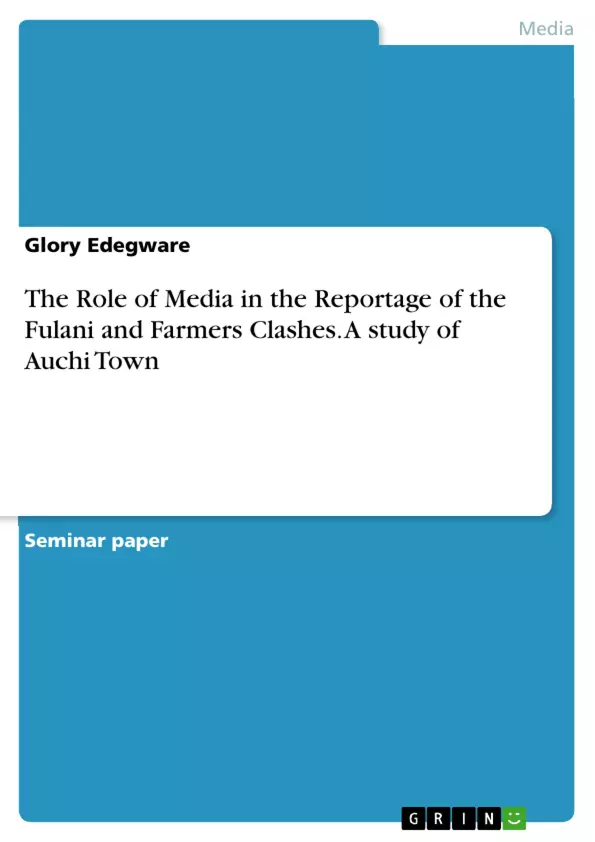This research, titled "An Assessment of the Role of the Media in the Reportage of the Herders and Farmers Clashes in Nigeria," examines the complex landscape of contemporary Nigeria, marked by social, political, and religious crises, with a focus on the Fulani herders/farmers conflict driven by resource scarcity. This conflict has inflicted a significant humanitarian toll, leading to numerous casualties and displacements.
The study's objectives are to analyze historical media reporting of the Fulani herders/farmers crisis in Nigeria and to assess the media's role in its resolution. It is anchored in the Framing theory, which emphasizes how media representation of issues can influence public perception. This research exclusively investigates the role of broadcast media in addressing this crisis. Data was collected from 368 respondents in Auchi town using purposive sampling. The study's findings reveal that the media often portrays the Fulani herders/farmers crisis negatively to capture audience attention, but it also plays a pivotal role in conflict resolution through objective and balanced reporting. However, challenges persist, including the media's lack of objectivity in conflict reporting, which can exacerbate situations. Contributing factors to the farmers-herdsmen crisis include climate change, land encroachment, small arms proliferation, and rural crime. Despite government efforts, the conflict endures due to gaps in strategies, such as the absence of preventive measures, weak policy implementation, insufficient religious tolerance promotion, and limited grassroots involvement in finding solutions. This study's significance lies in its potential to inform media practices and assist the government in formulating more effective approaches to address these clashes.
Inhaltsverzeichnis (Table of Contents)
- Introduction
- Statement of the Problem
- Objectives of the Study
- Research Questions
Zielsetzung und Themenschwerpunkte (Objectives and Key Themes)
This study aims to explore the media's role in the ongoing conflict between Fulani herders and farmers in Nigeria. It seeks to understand how the media has reported this conflict, and how its role can contribute to its resolution.
- Media's portrayal of the Fulani herders/farmers' crisis in Nigeria.
- The impact of media coverage on conflict escalation and resolution.
- The role of the media in promoting understanding and peace-building.
- The challenges and opportunities for media professionalism in conflict reporting.
- The relationship between media coverage and public perception of the conflict.
Zusammenfassung der Kapitel (Chapter Summaries)
The introduction sets the context for the study, discussing the historical tensions between herders and farmers in Nigeria and the escalating nature of the conflict. It highlights the key factors contributing to the conflict, including dwindling resources, competition for land, and the impact of climate change. The chapter also discusses the media's role in shaping public perception and its potential to influence conflict resolution.
The statement of the problem further elaborates on the significance of understanding the herder/farmer conflict in Nigeria. It emphasizes the humanitarian toll of the conflict, the need to understand the root causes of the violence, and the role of media coverage in exacerbating or mitigating the conflict.
Schlüsselwörter (Keywords)
This study focuses on the herder/farmer conflict in Nigeria, the media's role in conflict reporting, media bias, conflict escalation, peacebuilding, and the impact of media coverage on public perception.
- Quote paper
- Glory Edegware (Author), 2023, The Role of Media in the Reportage of the Fulani and Farmers Clashes. A study of Auchi Town, Munich, GRIN Verlag, https://www.grin.com/document/1387660



